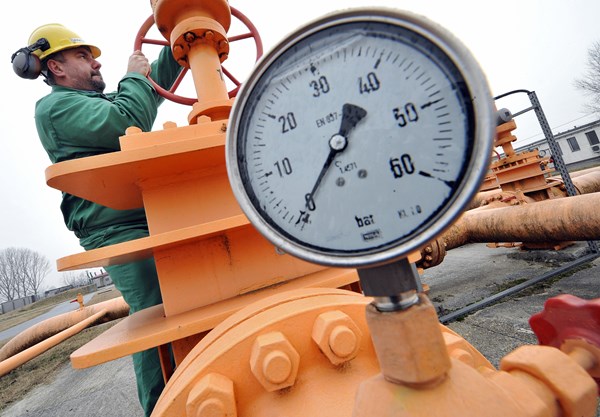European Commission: negotiations with Russia on gas transit through Ukraine have failed
The European Commission is disappointed with the results of the trilateral negotiations on Russian gas transit through Ukraine, said Maros Sefcovic, Vice President of the Energy Union, after meeting with the Russian and Ukrainian energy ministers, Alexander Novak and Oliksiy Orzhel, in Brussels.
According to Sefcovic, the Russian delegation refused to make concessions, even though there are only two months left in which to reach an agreement. Gazprom’s current contract with Kyiv expires on December 31.
In 2015, Gazprom CEO Alexey Miller promised to cease transit once the contract expired, and Novak said the same thing one year ago. However, the delays that have affected the construction of Gazprom’s Nord Stream 2 pipeline, the failure of attempts to extend the Turkish Stream to Italy, and the ban on utilizing 100% of Nord Stream 1’s capacity have forced the Russian officials to change their stance.
Kyiv is proposing a 10 year contract for 90 billion cubic meters per year, with 60 billion cubic meters of fixed volume and another 30 billion cubic meters of “variable” volume, said Orzhel, who headed the Ukrainian delegation.
The Russian representatives are stalling, citing documents that did not arrive on time or have not been translated into English, said Sefcovic. “One of the issues was that more time is needed to study the materials,” he explained.
Russia insists on a “package deal” that includes a peaceful settlement of the dispute between Gazprom and Naftogaz, noted Russian Energy Minister Alexander Novak.
In February 2018, an arbitration court in Stockholm awarded the Ukrainian company $2.56 billion in damages. Since then, many of Gazprom’s assets in Europe have been seized as an interim measure. One of the affected companies is Gaz Capital, a subsidiary in Luxembourg which Gazprom has used to place eurobonds and borrow money on foreign markets.
“It’s important that, from 2020, mutual relations are realized without the disputes that are currently at court,” Novak explained.
The minister said that Russia is satisfied overall with the outcome of the talks: in addition to transit, the possibility of a direct supply to Ukraine was discussed. The next round of consultations will take place in mid November. “We have seen that all parties have a constructive attitude. There are, of course, issues and risks, but we will deal with them together,” Novak remarked.
Sefcovic said that Europe is prepared for “any scenario” regarding the Russian gas supply, and so are the gas operators.
All parties are in agreement that halting the gas supply is not an acceptable option, and the EU is willing to make every effort to avoid such a scenario.
